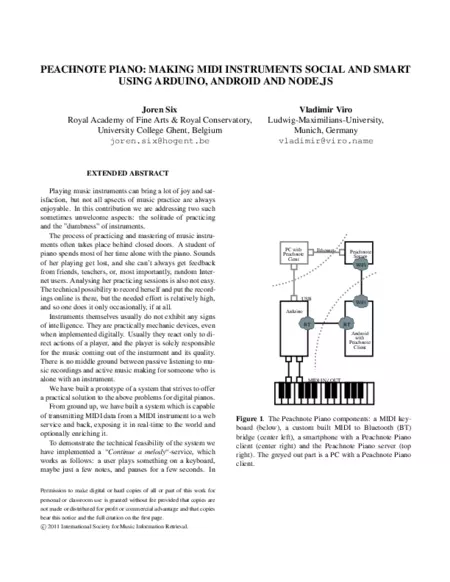Author version | Further information
Publication type: Articles in peer reviewed conference proceedings
Abstract: Playing music instruments can bring a lot of joy and satisfaction, but not all apsects of music practice are always enjoyable. In this contribution we are addressing two such sometimes unwelcome aspects: the solitude of practicing and the ”dumbness” of instruments. The process of practicing and mastering of music instruments often takes place behind closed doors. A student of piano spends most of her time alone with the piano. Sounds of her playing get lost, and she can’t always get feedback from friends, teachers, or, most importantly, random Internet users. Analysing her practicing sessions is also not easy. The technical possibility to record herself and put the recordings online is there, but the needed effort is relatively high, and so one does it only occasionally, if at all. Instruments themselves usually do not exhibit any signs of intelligence. They are practically mechanic devices, even when implemented digitally. Usually they react only to direct actions of a player, and the player is solely responsible for the music coming out of the insturment and its quality. There is no middle ground between passive listening to music recordings and active music making for someone who is alone with an instrument. We have built a prototype of a system that strives to offer a practical solution to the above problems for digital pianos.
Cite this article:
@inproceedings{six2011peachnote_piano,
Author = {Joren Six and Olmo Cornelis},
Booktitle = {{Demo Sessions of the 12th International Society for
Music Information Retrieval Conference (ISMIR 2011)}},
Title = {{Peachnote Piano: Making MIDI instruments social
and smart using Arduino, Android and Node.js}},
Year = {2011}
}

